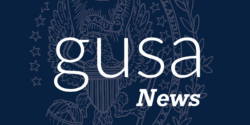Undergraduate student veterans at Georgetown receive far less in education benefits than veterans at neighboring institutions like George Washington University and peer institutions like Dartmouth College and University of Pennsylvania, according to figures from the Department of Veterans Affairs. The disparity results partly from the structure of the post-September 11 GI Bill, and partly from recent decisions made by university administrators about Georgetown’s contribution to the Yellow Ribbon program.
Under the new GI Bill that went into effect on August 1, 2009, the Department for Veterans Affairs provides a basic education benefit equal to the highest public university tuition and fees rate in the state where the veteran attends college. Tuition and fees at the University of the District of Columbia were $6,000 for the 2009-2010 school year.
The new GI Bill also created the Yellow Ribbon Program, matching veteran education benefits provided by universities and colleges with VA funds.
Georgetown University announced its participation in the Yellow Ribbon Program this past June and established a $1,000 benefit for undergraduate veterans. When matched by the VA and paired with the basic education benefit, student veterans at Georgetown receive about $8,000 toward tuition and fees – a small sum compared to the benefits veterans receive at other schools.
Alan Ardelean, a student veteran who served in Africa and is currently the co-chair of the University Military Association at Georgetown, says that the new bill is insufficient.
“The benefits we receive are good, but it doesn’t go far enough,” he said. “This new post-9/11 GI Bill doesn’t cut it.”
Many other schools have signed onto the Yellow Ribbon Program, offering benefits that dwarf Georgetown’s $1,000 commitment. Neighboring George Washington and American Universities provide $18,000 and $13,782 to veterans respectively.
D. Scott Heath, the assistant registrar for Veterans Affairs at Georgetown, said that after the university made the decision to provide the benefit to every veteran who chose to enroll, Georgetown was then constrained in how much it could offer, since it didn’t know how many veterans would enroll.
“We were working with a limited pool of money … and because we were offering an unlimited number we had to set a lower dollar amount,” Heath said.
Heath also pointed out that Georgetown already provides need-based financial assistance. Furthermore, roughly 80 percent of the veterans at Georgetown attend the School of Continuing Studies or the Graduate School so administrators chose to offer more Yellow Ribbon Benefits to those students.
Peter Nesbitt (SFS `11), who served in Korea, was worried that the veterans’ benefits wouldn’t cover his Georgetown expenses.
“It was somewhat of a nerve racking summer, like, will I even be able to go this fall? Should I start applying to different places?” Nesbitt said.
It worked out for Nesbitt because Georgetown’s financial aid package covered the costs that his veterans’ benefits didn’t. But he wonders if other veterans, unaware of how much financial aid they can receive from Georgetown, will be more attracted to other schools.
“People are going to choose where to go based on a combination of where is the best school I can get into, and at the same time, which school is going to give me the most money upfront,” he said. “That is going to impact veterans’ decisions.”
Heath said that the Yellow Ribbon Benefit will be reevaluated every year. He hopes that Georgetown’s contribution will increase in the future. The panel that set the benefit this past year included no student veterans, but Heath expects the committee to have student veteran representation when it meets again this spring.





How does the number of veterans at Georgetown compare to GW and American?
Did GW and American limit the number of veterans who could receive the Yellow Ribbon benefits?
I might consider the argument that Georgetown provides need-based financial assistance a valid one, if it truly means that veterans who needed more get more, and those who have adequate resources do not get a free ride. However, the seemingly meager Yellow Ribbon funding suggests the Georgetown does not consider veterans to have any more (or less) to offer the school than other potential candidates, and therefore are not owed preferential treatment by the school.